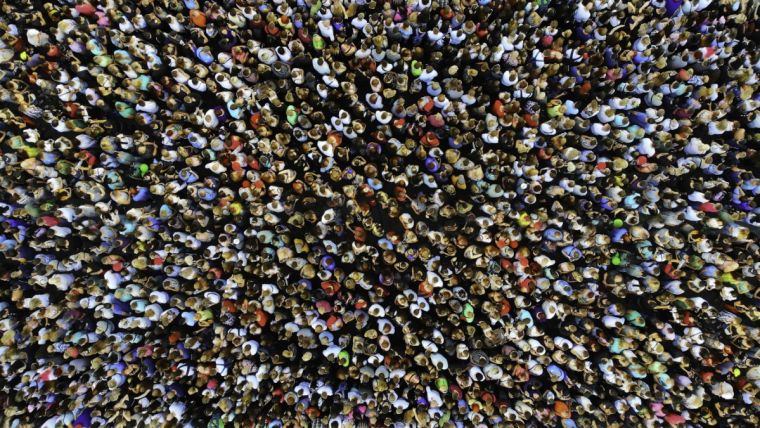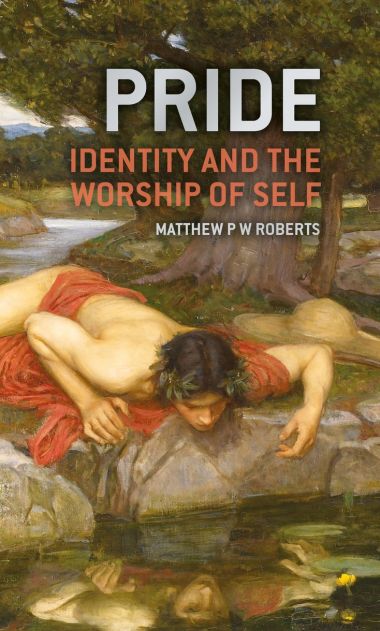Pride, the Self and the Church

Christian Today speaks to Rev Matthew Roberts, minister of Trinity Church York and co-author of the Greater Love Declaration, about his new book, Pride: Identity and the Worship of Self.
CT: In your book, you discuss the elevation of identity in modern culture. What do you think is driving this?
MR: There is a sense in which the current obsession with identity can feel like a new cultural phenomenon and, certainly, the prevailing beliefs around sexuality and gender identity are a very uniquely modern Western phenomenon. But in many ways, at its root it's not really new. Identity and our sense of self have always arisen from whom we worship, and embedded within the Biblical account of sin is the worship of false gods, which give us a false account of who we are. All that's changed is that modern society has a new idol - the Self. The Self has become an object of religious devotion and in turn, we've taken to believing that all of the feelings that arise within our Self are definitive of who we are.
The joy of being a Christian is that we have been brought into the worship of the true God; we know who we are and what we're made to do, but it's been a challenge to the Church to know how to respond effectively to this rise of Self and the parallel rise of a whole new morality and way of thinking about identity. And it has alarmed Christians to find that we're on the wrong side of this new morality and are now even considered immoral because of our supposed discrimination against people of certain identities.
CT: Why do you think the Church has struggled to respond to this adequately? Why is the Good News message of worshipping the real God not breaking through into today's cultural context?
MR: There's no doubt that as religion of the Self has taken centre stage, the Church has been dethroned from its central position in Western society. Having said that, it has always been the duty of the Church to proclaim the one true God into the context of a culture that worships other gods, and that is always messy and challenging to do. But there are large parts of the Church that have continued to do that faithfully, and the purpose of my book is to help them do so more clearly. The Gospel of Christ is such good news and Christian ethics really does make good sense - we have a wonderful Gospel to bring to a world that desperately needs it.

CT: Do you feel like Christians holding to this interpretation are becoming a minority within the Church?
MR: No, not at all - and certainly not globally. The vast majority of the Christian Church across the world has not been taken in by this belief that the Self is a deity that must be worshipped. It's actually very clear from the perspective of most of the rest of the world that this Western obsession with the Self is an idolatry that is very damaging. For those immersed in Western culture, it's become a lot harder but it's not anything like a minority view. While there is a lot of confusion, it's only a minority who really want to follow the culture.
CT: How much is this idolatry of Self connected to the split between orthodoxy and progressive liberalism?
MR: It's essentially the same thing. The Church in every culture has to deal with those who want to follow the culture while still claiming the name of 'Christian'. That's happened everywhere, whether that's the Roman Empire, animist countries, communist countries and so on. It's always been a huge battle for the Church to say no, we are going to follow what God has said because He is our Lord, and we are going to worship Him and take our identity from Him. Orthodoxy in our day is about refusing to follow our culture in worshipping the Self.
There's a strong parallel with the Arian controversy of the 4th century which debated whether Jesus was truly God. The Christian idea of Christ as stated in the Bible was very offensive to the Greek way of thinking. The Arian idea that Jesus was simply a great man but not God was far more acceptable and some thought it would be far more evangelistically effective. It was the orthodox in the church who had to stand for the Biblical view and it's the same thing happening today. It's more comfortable to say to a culture that is deeply self-obsessed that we accept your view and your feelings and how you define yourself, and we can redefine everything around that. It's the orthodox who are having to stand for the Biblical view again in this battle.
CT: Who's your book for?
MR: I hope that it's accessible and readable for any Christian wanting to wrestle with these issues. I'm a pastor and it's written with a pastoral concern for people. It looks at how these issues affect real people and how the Church can engage with people for whom identity or sexual temptation are a real struggle. It also looks at how we ourselves need to repent for all the ways we place far too great a value on Self.
CT: You mention people who might be struggling with their identity. Are you concerned that with conversion therapy bans being considered in the UK, there may soon no longer be the space or freedom to explore Biblical concepts of identity?
MR: It's possible that we will no longer have the legal freedom and it might feel like we don't have the social freedom because of all the social pressure. But one of the joys of being a Christian is that, under God, we are always free to be who we are. He sets us free. Martin Luther's great work, The Freedom of a Christian, isn't about whether or not the government says we're free to do something; it is Christ who offers real freedom. The obsession with identity is deeply enslaving and deeply damaging to people, and what Christ brings by calling us to deny ourselves and take up our cross and follow him, is liberty and freedom from all of that.
What those calling for a conversion therapy ban really want is a ban on conversion to Christianity, and we hope and pray very much that the governments of the UK will not seek to legislate against that because that would be a terrible thing. Having said that, there are plenty of countries that already ban conversion to Christianity and that doesn't mean you can't become a Christian. It just means that the cost of doing so is rather higher and if that becomes the case here, then Christ is still Lord, it's still better to worship him, and we hope that he will bless us despite and even through that.
CT: It can seem a bit like in our day and age the Church is on the backfoot. Are you optimistic it can emerge in a stronger position in the future?
MR: If you're not optimistic, you're not a Christian! As we say regularly in our creeds, Christ will come again to judge the living and the dead, and his kingdom will have no end. He is the King of Kings and Lord of Lords. He will return and he will triumph. As I say in my book, the worship of the Self is so damaging and enslaving to individuals. The Gospel is exactly the news that our world needs. The Bible speaks clearly about how idols only trap us, lie to us, and lock us into a way of thinking and living which is deeply negative and damaging. Christ set us free from all of that, and that is why the Gospel is incredibly good news to those who identify as lesbian, gay, transgender or any other identity. It's incredibly good news that he sets us free from what is a dreadfully shrivelled, painful and difficult way to live and to think of yourself. So I'm immensely positive. The Church has got a wonderful Gospel to proclaim and the point of my book is to help the Church believe it and proclaim it more clearly.
Pride: Identity and the Worship of Self is out now priced £14.99.











